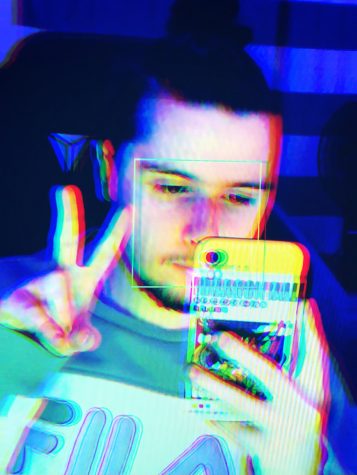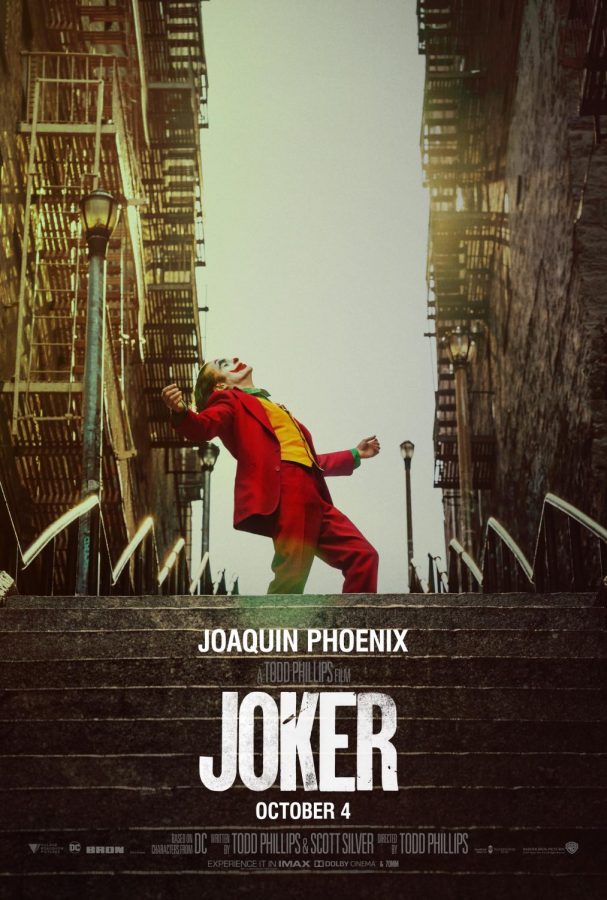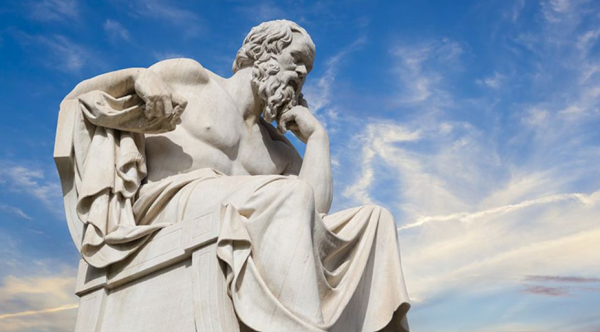Joker – A Brash Societal Diatribe
When you think of the difference in social classes in our first-world society, what thoughts do you have? Are you comfortable with the arrangement of things? Do you have concerns? Perhaps you’re outright opposed to the class system entirely? Maybe you can recognize the twisted moral compass of the people who not only run, but benefit from such a system.
The questions raised by such thoughts are what make the basis of Joker’s narrative so utterly fascinating. It’s a system that most people don’t give a lot of thought, especially if that system doesn’t affect them negatively on a daily basis.
Calling 2019’s acclaimed hit “Joker” a brilliant social commentary would be a criminal understatement. The Todd Philips-directed character study sees Joaquin Phoenix in the titular role. His casting is one that was admittedly unexpected for the character, but one that a lot of people – once they considered his track record – had high hopes for. The film debuted at the 76th Venice International Film Festival on August 31, 2019. There, it received a standing ovation and won the prestigious Golden Lion award. After a second screening at the Toronto International Film Festival that September, the film began its theatrical run on October 4, 2019.
The film follows Arthur Fleck: a party clown by day, and an aspiring comedian by night. Arthur suffers from a mental disorder that causes him to laugh hysterically at erratic, and often inappropriate times. At the start of the film, Arthur be seen being battered by a group of teenagers while in the middle of a street performance. This shows us the general nature of Gotham’s citizens, and how awfully Arthur is treated by its well-off general public. The rest of the movie follows Arthur as he descends into an increasingly violent and unpredictable mental state.
It begins when a gun falls out of his pocket during a performance at a children’s hospital. Arthur initially received the gun as a “gift” from one of his coworkers, Randall. As it turns out, this mishap would get Arthur fired, and unbeknownst to him at the time, such was Randall’s precise intent in his decision to give him the gun. Still in costume, and completely dejected, Arthur takes the subway home. On the train, in the midst of an uncontrollable frenzy of laughter, he’s harassed and beaten by three young men who he ends up shooting and killing in a fit of complete lunacy.
This event acts as a catalyst for a citywide movement. The killer, which isn’t initially identified as Arthur, was cited as wearing a clown mask by eyewitnesses. Riots begin to break out all over Gotham and surrounding areas with participants of these violent protests donning clown masks as show of their support for Arthur’s atrocity. The motive for these protests lies in the financial and social inequality in Gotham. The poor are practically soil to the wealthy and receive no support from the government. Thus, Gotham’s lower-class population have decided the only way to make their voices heard is through ferocity, brutality, and general uncivil outcry.
Throughout the rest of the film, we see Arthur devolve into a demented psychopath. He stops receiving medication, and he learns more of the traumatic past that he’d long since forgotten. Arthur has his first gig as an aspiring standup comedian, which backfires spectacularly when a recording of his amateurish performance makes its way onto Gotham’s airways via Murray Franklin’s popular late night talk show. By the end of it all, the streets are ridden with chaos, and a scuffed, face-painted Arthur takes up his mantle as ringleader, and becomes the Joker as we know him.
This movie is a pretty strong one writing-wise. Themes dissecting the faults of the class system in America and the social troubles of the mentally ill are consistent. If you’re familiar with how superhero movies normally work, and it’s what you’re expecting going into Joker, don’t be surprised when your expectations are completely thrown for a loop. Joker may be about a DC character in a DC Universe, but it’s really the furthest thing from a superhero/supervillain movie in the traditional sense. Joker is, at its core, a Scorsese-esque character study more akin to something like “Taxi Driver” or “The King of Comedy.” It wears its influences on its sleeve, and that works fantastically for the movies central narrative.
To further add to the movie’s illustriousness, Arthur is written as a very real, palpable character. It’s very easy to write a character’s flaws to be contrived for the sake of the plot. In Arthur’s case, his flaws are real and tangible and make a ripple on those around him. He is more than a device to carry a narrative, and when you write characters like this, it makes them not only more interesting to watch, but more engaging and easy to connect to.
Now, the writing certainly isn’t perfect; far from it, actually. There are a lot of weird contrivances and things that happen seemingly only because they would allow for the story to go in the direction the writers wanted it to. Sometimes events, and the order they happen in, seem too convenient. For instance, a clip of Arthur’s botched standup performance being played on Murray Franklin’s late night show, and Arthur thereafter being conveniently invited on the same show to entertain Murray and his audience; which also goes south very quickly, all for the sake of saying, “Society makes fun of Arthur,” feels like a little more than just happenstance. The problem is that it shouldn’t feel like things happen just for the sake of plot, but they do sometimes.
The pacing in this movie is also a point of note, because it’s also pretty excellent on its own. No scene ever drags on or goes on longer than it has to, a mistake that is very, very easy to make in today’s cinema. Everything happens in a sequence that is buttery smooth and flows seamlessly like fresh water. Every minute and every second of the film feels important and there’s pretty much no filler to speak of. Not a minute is wasted on unimportant plot points or story beats, everything that is here is here to serve the story and serve the narrative, a trait which is becoming exceedingly rare in movies and especially in superhero films. Not to mention that the cohesion of the story makes it so satisfying to go through. Everything ties together magnificently. Every line that’s said or point that is made can be traced back to at a later point for the sake of clarity.
Both good and bad aspects of the writing aside, Phoenix absolutely kills this role. It’s being cited as one of the best performances of his career, and for good reason; Phoenix is just awesome in this movie. He portrays Arthur’s character in a perfect combination of comprehensiveness, realism, and most importantly; confidence. You can tell Phoenix did a decent chunk of improv too. The most notable aspect of Phoenix’s performance, however, is his pitch-perfect portrayal of the imperfections and inconsistencies of human conversation. Arthur is an awkward fellow, and sometimes makes pretty unnatural gestures or speaks very haphazardly. This is a masterful execution of the kind of character Arthur Fleck is. He is a self-proclaimed loner in a society that will never accept him. Phoenix, at the end of it all, makes it look like child’s play. He just nails this role in every way.
The visuals are another stellar quality of this movie. Sure, there were better looking films released in 2019, but you cannot deny that this one is up there, the cinematography and color grading especially. Gotham is a dark, dilapidated, grungy, and worn-down city. Despite this, they somehow managed to make it appealing visually. It kind of has an aesthetic all its own, comparable to a neo-noir type of vibe.
It’s also very nicely shot, so much so that it’s kind of inexplicable, actually. Joker’s cinematographers make brilliant use of what’s given to them. They especially nail shots with symmetry, in places like stairways and corridors. You can tell that they really had a very particular artistic intent with how they framed and composed every shot. The surroundings feel purposeful and it sucks you in like few movies are able to by way of their visuals alone.
As of January of 2020, Joker has been nominated for 11 Academy Awards, including but not limited to Best Picture, Best Actor in a Leading Role, Best Cinematography, and Best Direction. This is a further testament to the talent and love that went into making this film more than just a supervillain movie. Joker is a bold and competent character study that breaks the pre-established quota for supervillain origin stories
Joker is out on digital. You can find it on Amazon Video, YouTube Movies, Vudu, and Google Play right now.

Braeden Meadows is a 2021 Graduate of Liberty High School and former Managing Editor for The Patriot Press. They are now a part-time freelance journalist,...


![[Actual Photo from a review on TripAdvisor]](https://libertypatriotpress.com/wp-content/uploads/2025/05/Screenshot-2025-05-29-133216-600x406.png)




Betzaida Cortez • Mar 11, 2020 at 10:08 am
great article! I really want to see the movie but a little scared. keep up the work
Brianna Drone • Mar 11, 2020 at 9:50 am
This sounds like a really good movie!! Cant wait to go home and watch it.
Bailey • Mar 9, 2020 at 1:25 pm
I really thought the movie was different and interesting. It had great parts and stuff i wouldn’t expect to happen it it. I haven’t seen a movie like that before. Great article with lots of details.
Tara • Feb 7, 2020 at 1:11 pm
The movie was so good and i love the article
Karlee • Feb 7, 2020 at 1:10 pm
I wanted to see this movie when it came out but i couldn’t. it looks like an amazing movie to see. i heard a lot of good stuff about this movie. I love how the movie shows real world problems and not impossible problems that only could happen in the made up world of Gotham.
Emily Campbell • Feb 6, 2020 at 8:56 am
It sounds like a really good movie.
danae hogan • Feb 5, 2020 at 9:09 am
i really liked the movie as well cause it had great content it was really unexpected parts like when he started to change his personality but other than that this article was really good.
Tato Coto • Jan 31, 2020 at 1:16 pm
So I watched this movie and it was such a masterpiece! And reading this article really sums up the what I thought about the movie. For this being a DC movie and how their movies in the past weren’t very great, but this one is their child. I really feel as this is the best DC movie they have ever made, and the fact that this isn’t a normal villain and hero movie. This touches up on real world problems and what could happen to people in real life. It’s music and visuals are super stunning, I really think you touched on it very well. Nice job Breaden I look forward to your articles!
Christian Torres • Jan 31, 2020 at 9:01 am
I liked the movie and you made a good description of the movie
Ava Wrigth • Jan 30, 2020 at 6:42 pm
I really want to see this movie now I have an idea what it is about. You did a wonderful job with this article.
Ms. Crocker • Jan 29, 2020 at 3:07 pm
I haven’t seen this and now, I really really want to! Plus, this was a very well written review!
Keely Crane • Jan 29, 2020 at 9:55 am
Loved this review! Perfectly described the movie
andy • Jan 28, 2020 at 10:22 am
cool and nice
kaleece blackwell • Jan 27, 2020 at 10:53 am
Very well written. Great job.